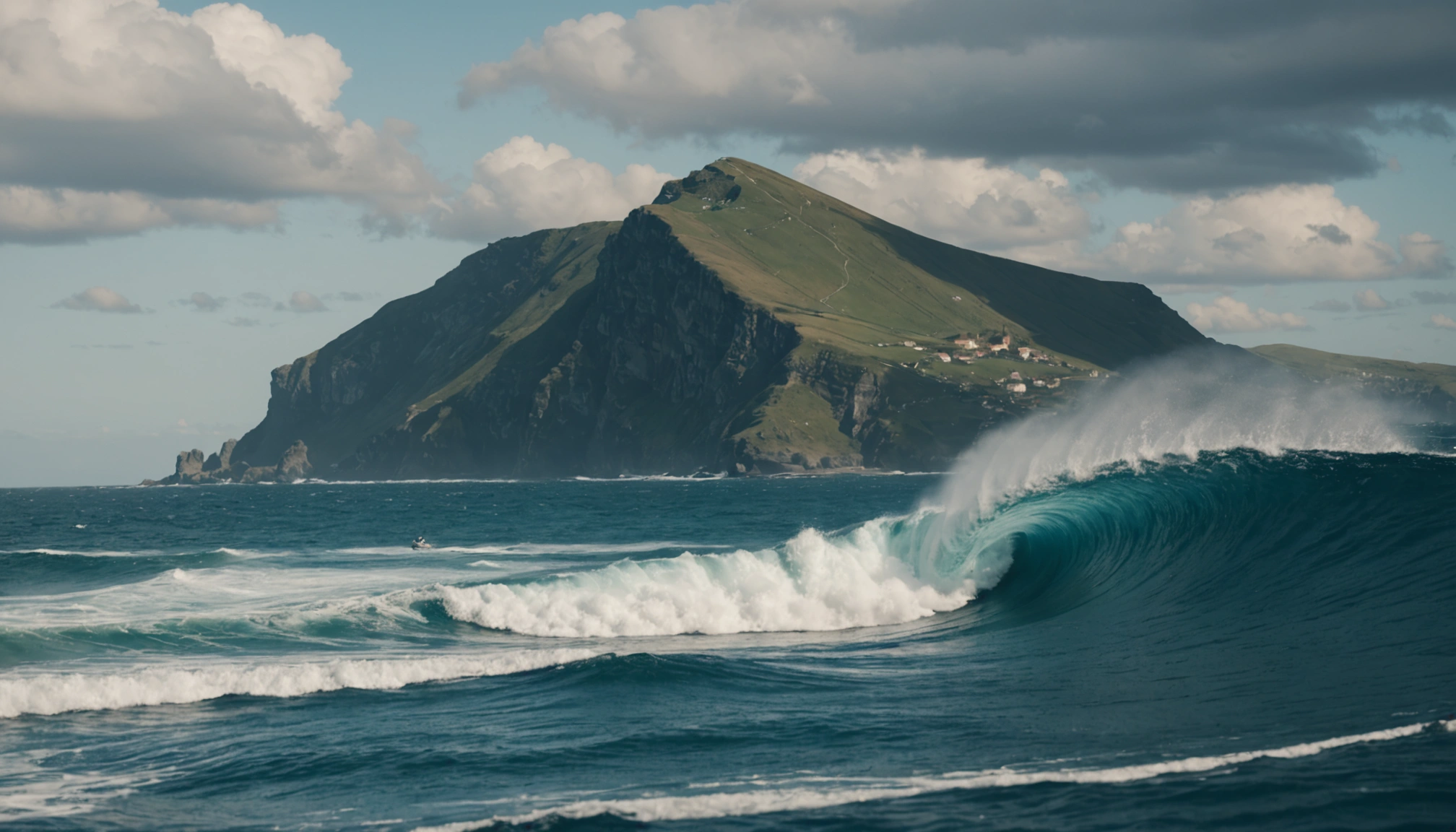Oceans in Crisis: A Deep Dive into the Troubled Waters of Our Planet

The world's oceans, the very cradle of life and a vital component of Earth's climate system, are facing a multifaceted crisis. From rising temperatures and acidification to plastic pollution and overfishing, the cumulative impact of human activities is pushing marine ecosystems to the brink. The situation demands urgent attention and concerted global action to mitigate further damage and safeguard the future of our oceans.
A Warming World, A Warming Ocean
Ocean temperatures are steadily increasing, with the rate of warming having doubled in the last 20 years. The ocean has already warmed by an average of 1.45°C. This warming trend is primarily driven by the absorption of excess heat trapped by greenhouse gas emissions. The consequences are far-reaching, contributing to rising sea levels, more frequent and intense marine heatwaves, and the disruption of marine ecosystems. Coral reefs, often dubbed the "rainforests of the sea," are particularly vulnerable, experiencing widespread bleaching events as a result of elevated temperatures.
The rise in sea levels has doubled in the last 30 years, now totaling 9 cm. This poses a significant threat to coastal communities and ecosystems, increasing the risk of flooding, erosion, and saltwater intrusion into freshwater sources.
The Acid Test: Ocean Acidification
The ocean absorbs approximately 25-30% of fossil fuel emissions, which alters the chemical composition of the sea. Since pre-industrial times, ocean acidity has increased by 30%, with coastal areas being the most affected. This process, known as ocean acidification, occurs when carbon dioxide dissolves in seawater, forming carbonic acid. The increased acidity reduces the availability of carbonate ions, which are essential for marine organisms like shellfish and corals to build their skeletons and shells. This can have cascading effects throughout the food web, threatening marine biodiversity and the livelihoods of those who depend on it.
Plastic Plague: A Sea of Waste
Marine pollution is reaching extreme levels, with over 17 million metric tons of plastic clogging the ocean in 2021, a figure that is projected to double or triple by 2040. Plastic is the most harmful type of ocean pollution. From microscopic plankton to massive whales, marine life is increasingly threatened by plastic ingestion, entanglement, and habitat destruction. Microplastics, tiny plastic particles less than 5 millimeters in diameter, have been found in all marine habitats, from the ocean surface to the seabed, and are ingested by a wide range of species. The long-term effects of microplastic exposure on marine organisms and human health are still being investigated, but preliminary studies suggest potential risks to immune function, reproduction, and development.
Overfishing: Emptying the Seas
Overfishing remains a persistent threat to marine ecosystems, with approximately 70% of world fish populations being unsustainably exploited. Experts warn that the cumulative impact of this along with other ocean stressors makes this particular situation worse than previously reported. As a result, fisheries are collapsing worldwide. Currently, 25% have biomass collapsed to less than 10% of historic levels. Illegal, unreported, and unregulated (IUU) fishing further exacerbates the problem, undermining conservation efforts and threatening the livelihoods of legitimate fishers. The depletion of fish stocks not only disrupts marine food webs but also has significant economic and social consequences for communities that rely on fishing for food and income.
Hope on the Horizon: Conservation and Restoration Efforts
Despite the grim outlook, there is still hope for the future of our oceans. Growing awareness of the challenges facing marine ecosystems has spurred a range of conservation and restoration efforts at local, national, and international levels. These include the establishment of marine protected areas, efforts to reduce plastic pollution, initiatives to combat illegal fishing, and investments in sustainable aquaculture practices.
Marine forests of mangroves, seagrass beds and kelp forests stand as a biological defense against global warming and to help biodiversity. They can absorb up to five times more carbon than forests on land. Yet, the UNESCO report shows that almost 60% of countries still have no plans to restore or protect marine forests.
The United Nations has proclaimed the Decade of Ocean Science for Sustainable Development (2021-2030) to promote international cooperation and accelerate scientific research to address the challenges facing the ocean. UNESCO launched a new flagship report entitled “State of the Ocean Report”, offering a brief, accessible, one-stop overview of the current state of the ocean. Careful management of this essential global resource is a key feature of a sustainable future. This includes increasing funding for ocean science, intensifying conservation efforts, and urgently turning the tide on climate change to safeguard the planet's largest ecosystem. Current efforts to protect are not yet meeting the urgent need to safeguard this vast, yet fragile, resource.
A Call to Action
The state of our oceans is a stark reminder of the profound impact of human activities on the natural world. Addressing the challenges facing marine ecosystems requires a fundamental shift in our relationship with the ocean, moving from a model of exploitation to one of stewardship. This includes reducing greenhouse gas emissions, transitioning to a circular economy that minimizes waste, promoting sustainable fishing practices, and investing in ocean research and conservation. The future of our oceans, and indeed the future of our planet, depends on our collective willingness to act decisively and protect this vital resource for generations to come.
Related Articles

Iberian Peninsula Blackout: A Wake-Up Call for Renewable Energy Infrastructure

